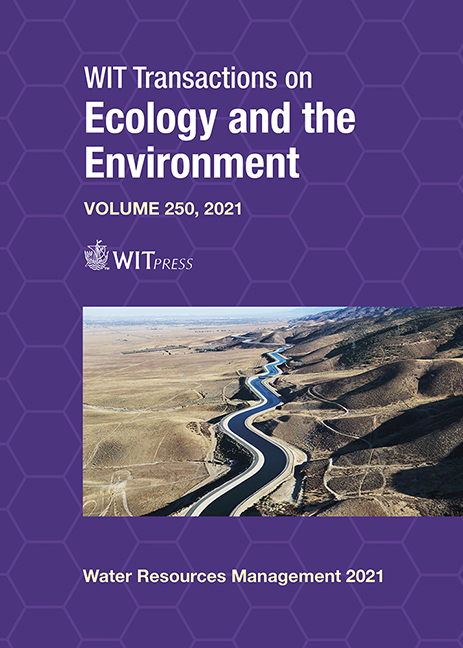DEVELOPMENT OF FLOOD TRACKING TECHNIQUE FOR FLOOD DISASTER MANAGEMENT IN URBAN AREAS
Price
Free (open access)
Transaction
Volume
250
Pages
13
Page Range
221 - 233
Published
2021
Size
1,599 kb
Paper DOI
10.2495/WRM210191
Copyright
Author(s)
DONG HO KANG, SUK HO LEE, BYUNG SIK KIM
Abstract
The change in precipitation due to climate change has induced local and torrential rainfalls. As a result, protected lowlands have an increased risk of damage caused by river inundation and subsequent flooding. Thus, it is necessary to have the technology to predict the damage due to flooding in a protected lowland. This study developed a distributed flood and inundation model called Simplified Inundation Model (SIMOD) to simulate a flooding path for identifying how flooding caused by river embankment’s breakage is inundated and spread in a protected lowland. Two methods were applied to simulate a flood path: the multiple flow direction method (MFDM) and the flat-water assumption (FWA) method. Virtual scenarios were set to calculate an inundation range over time in the Seongseoje, located downstream of the Geumho river, and evaluate the model. In addition, the urban inundation analysis was executed using the SIMOD. The results were compared to results from using the commercial inundation analysis two-dimensional flood routing model (FLO-2D) to verify the model’s applicability. The study applied the digital elevation model (DEM) terrain data for conventional flooding analysis and digital surface model (DSM) terrain data to represent urban building groups and road distribution. The 24-hour simulation was done less than 7 minutes using the SIMOD, and the difference in flooded areas was less than 20% compared to FLO-2D. Moreover, the study identified the need for topographical data using DSM for urban areas, as the analysis proves the influence of roads and buildings on flooding.
Keywords
simplified inundation model (SIMOD), two-dimensional flood routing model (Flo-2D), multi direction method (MDM), flat-water assumption (FWA)





